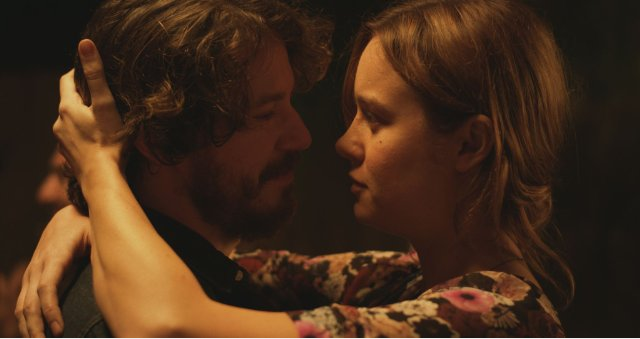When Jayden first joins Short Term 12—a group home for at-risk teens—she introduces herself with an apology. She’s sure the people sitting around her are nice enough, but she doesn’t want to get to know them.
“Don’t take it personally,” she says as she makes her anti-introduction. Jayden knows the drill all too well: Take your meds, follow the rules, don’t freak out. If you don’t make friends at the foster care facility, it’s easier to leave.
But Jayden, played with enormous heart by Kaitlyn Denver, soon realizes what the audience knows from the start—that it’s impossible not to get drawn into the community at Short Term 12.
Director Destin Cretton begins the film with what seems like a funny-but-banal conversation between friends. The camera shakes as if filmed on a hand-held camera while Mason (John Gallagher Jr.) tells a story about his first few weeks working at the group home. Fellow social workers Grace (Brie Larson) and Nate (Rami Malek) lean against a white picket fence and look out over the yard. The scene is drenched in what looks like the warm, yellow glow of an Instagram filter, which immediately prompts a feeling of dread. Not another cutesy indie movie about troubled teens.
But it’s not. A shrieking young boy bolts from a bungalow nearby, and Mason’s story is cut short. Cussing and kicking as the social workers catch him and pin him down, he slowly calms as Grace strokes his hair. In the first 10 minutes, Short Term 12 jerks back and forth between calm and panic, carefree conversations and life-threatening emergencies. The film keeps pace for the next two hours, never stopping but never crossing the line into hyper-dramatic after school special territory either. There’s a reason it won both the Grand Jury Narrative Feature and the Narrative Audience Award at this year’s SXSW film fest.
The characters in Short Term 12 are brilliantly broken. Throughout the film, Marcus slowly processes his impending 18th birthday—a celebration-turned-curse because it means he has to leave the foster home and make it on his own. Grace helps him along, but she’s dealing with her own issues even as she puts on a perfect front for the teens. Her father’s about to be released from prison, and her anxiety creates tension between her and Mason. Their relationship guides the movie, slowly unfurling in unexpected and delightful ways.
Just as the storyline never loses sight of the teens, neither does the camera. In many unrelated shots they’re playing in the background, seemingly unaffected kids from afar. The camera blurs and jerks and closes in to reflect their emotional breakdowns, but never too often.
Strikingly complex, the beauty in Short Term 12 is in the details. And the film is truly gorgeous. The joy of small moments is heightened by the intensity of the pain that Cretton shows through his characters with full force. The set for the solitary confinement room—blue carpeted walls stained with fading crimson blood marks—becomes a place of laughter as Grace and Jayden punch a blow-up toy inside. Their sky-colored shirts blend into the room’s walls, anchoring them to the space.
In another scene, Jayden smashes icing into Grace’s face as she attempts to lock herself in her room and self-harm. Grace keeps the young girl down, and Mason breaks the tension in an instant, looking at the cream cheese frosting and red velvet crumbs hanging from her cheekbones: “Grace, how’s my cupcake?”
It’s this play between lightheartedness and despair that gives Short Term 12 its depth—everyone in the movie wants to be happy, but sometimes the point is not to fix the pain, but to carry on through it. When Mason finally finishes his interrupted story, you feel like a part of the conversation.







